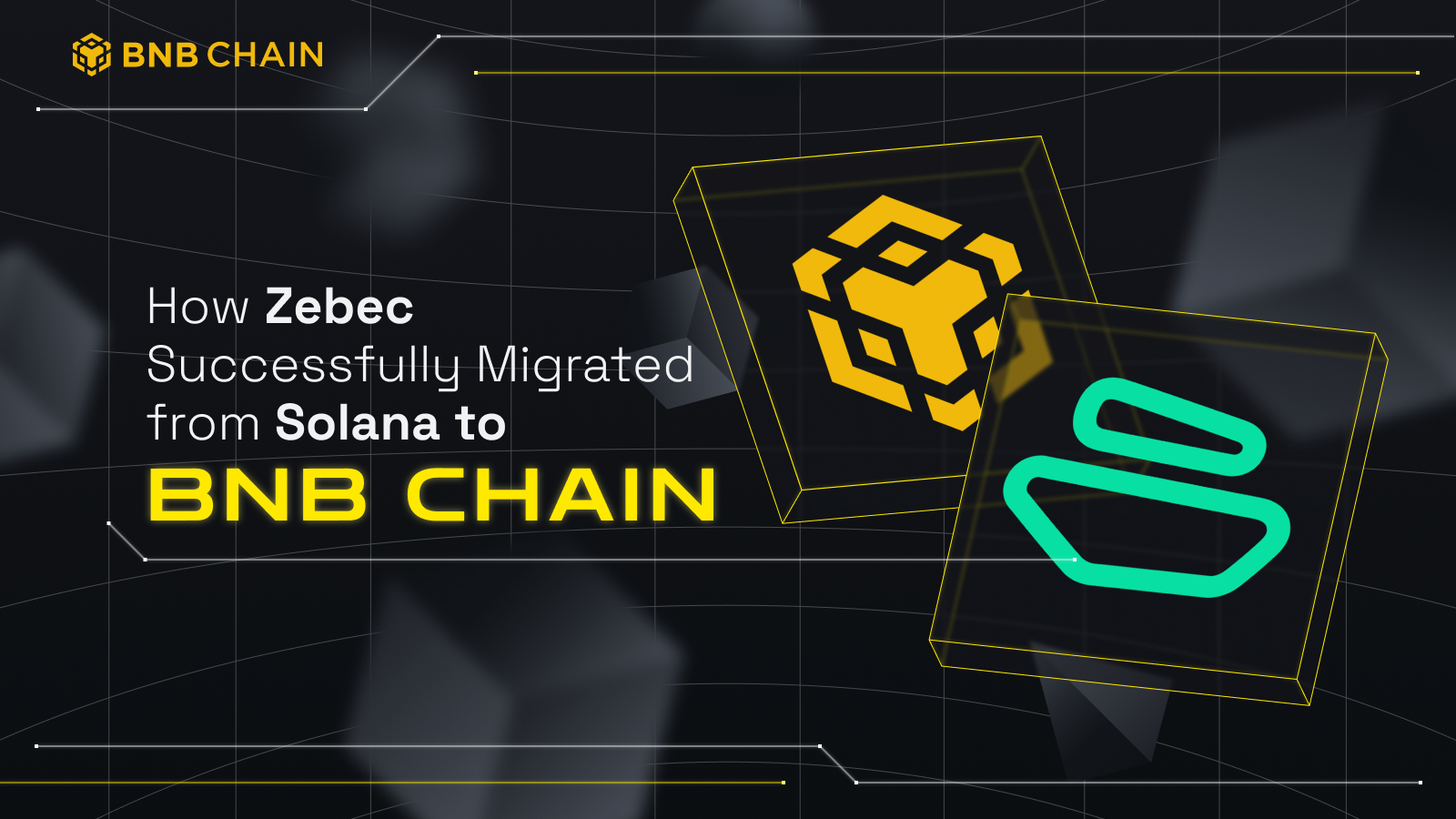Chains
BNB Beacon Chain
BNB ecosystem’s staking & governance layer
Staking
Earn rewards by securing the network
Build
Explore
Accelerate
Connect
Careers🔥
Explore Opportunities on BNB Chain
How Zebec Successfully Migrated From Solana to BNB Chain

As crypto markets continue to face mounting uncertainty in the wake of the recent FTX bankruptcy, many Solana developers across the globe are actively considering the strength and stability of their current L1 environment.
BNB Chain is one of the most uniquely configured and utilized L1 blockchains in the world, offering developers tremendous flexibility and opportunity to build dApps across GameFi, SocialFi, DeFi and more. To date, BNB Chain currently has more than a thousand dApps with 215 million unique wallet addresses, 1.2 million daily active users and $5.8 billion total locked value.
Zebec, a continuous settlement protocol, recently made the migration from Solana to BNB Chain. Below, we highlight their story as an example for other Solana devs who are considering moving their project to a new L1.
What Is Zebec
Zebec is a revolutionary DeFi technology that empowers real-time, frictionless, and continuous streams of payments, enabling a composable transfer of value. The automatic money streams made possible through their initial product, Zebec Pay, allow businesses, employees, and consumers to completely reimagine how they are paid, how they invest, and how they buy products or services. The protocol remains programmable, open to apps wanting to establish ongoing connections with user balances, automating payments, investments and trading.Their second product, Zebec Safe, is a fully customizable multi-sig on Solana.
Zebec’s Migration to BNB Chain
After developing the project on Solana, Zebec’s plan had always been to go multi-chain to give more users greater access to its products irrespective of chain, with their wallet of choice. The team decided to move forward with the migration to BNB Chain because of its wider and active community, EVM compatibility, lower gas fees, faster and seamless transactions, and ease of integration with bridges. Once plans had been set and word got out about the migration, the BNB Chain community reacted very positively, welcoming Zebec into the BNB Chain family.
At first, the Zebec team had trouble finding information around bridges, but after delving into the clear and canonical documentation available to BNB Chain the path was clear for the Zebec team to move forward. Much of their technical work was based on research and innovation around bridges and cross-chain functionalities. “Infrastructure tools like gateways and wallets as well as the community helping us to troubleshoot made it really easy to build on BNB Chain,” said Sam Thapaliya, Zebec’s founder. Zebec developed BNB Chain-compatible smart contracts and applications to interact with Rust smart contracts on Solana through a wormhole bridge, making the dApp accessible to the BNB Chain community.
Here’s a more granular look at Zebec’s migration and integration process:
- Research Wormhole bridge and cross-chain messaging
- Develop a source code in BNB Chain to generate instructions for Zebec contract
- Use token portal to bridge tokens cross-chain while using Zebec
- Develop a source code in Rust for Solana to execute instructions coming from BNB chain
- Develop a relayer for messages from BNB Chain to Solana
- Develop a dApp in BNB Chain with integration to source code in BNB
- Deployment of source code and dApp to the BNB chain
Onward and Upward on BNB Chain
BNB Chain is home to some of the most innovative, most respected dApps in the world. While migration from one chain to another can be a big lift, the BNB Chain community, from fellow developers to users to the BNB Chain core tech team itself, are actively working to make the transition for high quality projects as seamless as possible. For projects looking to onboard mainstream users and truly advance the adoption of Web3, look no further than BNB Chain.
Follow us to stay updated on everything BNB Chain!
Website | Twitter | Twitter (Devs) | Telegram | Youtube | Gitcoin | Discord | Build N' Build Forum